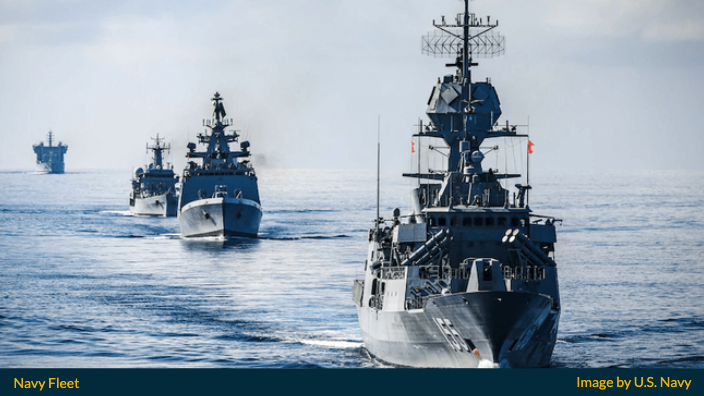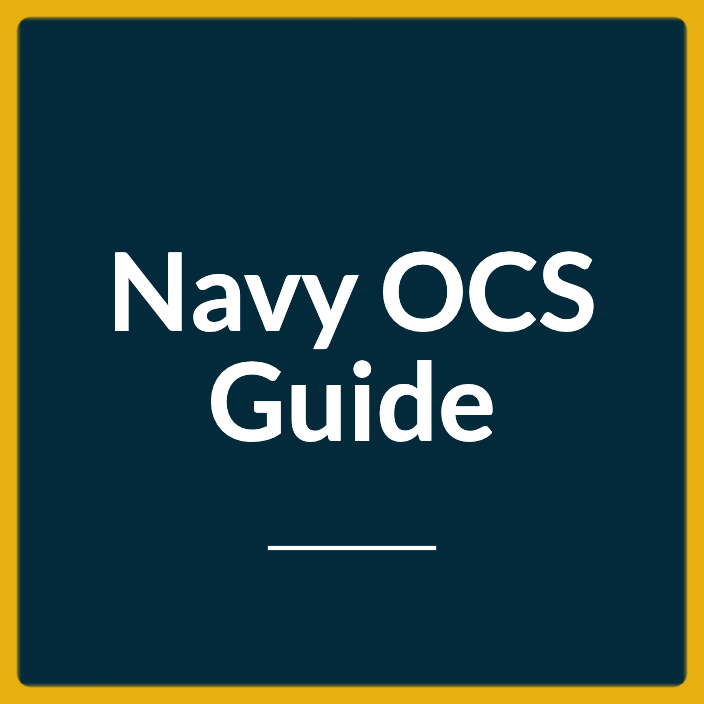Running a Navy ship takes nonstop work, with officers handling everything from navigation to combat systems to keeping the engines running.
These ships are big, complicated, and packed with technology. Nothing works without a crew that knows exactly what they’re doing.
Every officer has a job—some steer the ship, some manage weapons, others keep the power on. Without them, the mission falls apart.
Commanding officers call the shots. Engineers keep the ship from breaking down. Logistics officers make sure there’s fuel, food, and supplies. Every role matters.
Here’s a breakdown of the key officer roles on a U.S. Navy ship and what it takes to do the job.
- Commanding Officer (CO)
- Executive Officer (XO)
- Officer of the Deck (OOD)
- Department Heads
- Division Officer
- Engineering Officer (Chief Engineer)
- Operations Officer
- Weapons Officer
- Navigation Officer
- Supply Officer
- Medical Officer
- Dental Officer
- Chaplain
- Public Affairs Officer (PAO)
- Legal Officer
- Combat Systems Officer
- Damage Control Officer (DCO)
- Communications Officer
- Intelligence Officer
Commanding Officer (CO)
The Commanding Officer (CO) of Navy ships refers to the highest-ranking officer in charge of the operations and management of a naval vessel.
They oversee the crew, ensure the ship’s readiness, make strategic decisions, and maintain discipline and order onboard.
The CO holds the ultimate authority and is accountable for the ship’s performance and mission success.
The ship’s staff informally calls the CO “skipper, ” “old man,” or “captain”.
Executive Officer (XO)
The Executive Officer (XO) of Navy ships is the second-in-command officer responsible for assisting and supporting the commanding officer in the overall management and operation of the ship.
The XO oversees the day-to-day ship operations, including administrative tasks, personnel management, and ensures the ship’s mission readiness and efficiency.
In addition, the XO serves as the CO’s advisor and ensures that orders are carried out properly. The XO is also responsible for writing reports and briefings, and representing the ship in various capacities.
Officer of the Deck (OOD)
An Officer of the Deck (OOD) in a U.S. Navy ship is an officer responsible for the safe navigation and operation of the ship during a specific watch.
The OOD is in charge of maintaining situational awareness, ensuring adherence to protocols and procedures, and deciding regarding the ship’s course, speed, and activities.
They also oversee the execution of orders from higher-ranking officers and coordinate with other departments on the ship. Plus, they handle the security of the ship and crew.
They also ensure that all personnel assigned to their watch are aware of their duties and responsibilities, as well as any changes in orders or conditions on board.
The OOD is a duty position, so officers standing this OOD duty typically have other primary duties elsewhere in the ship.
Department Heads
Department Heads of Navy ships are senior officers responsible for managing and overseeing specific departments aboard a naval vessel.
They coordinate and supervise the activities of their respective departments, ensuring efficient operation and maintenance of equipment and systems, and providing leadership and guidance to their department personnel.
They require higher managerial skills and handle a wide range of tasks, such as developing plans, budgets, personnel management, training new personnel, safety and security, and integrating different departments’ activities.
Department Heads play a crucial role in the overall functioning and readiness of a Navy ship.

Division Officer
A Division Officer in a U.S. Navy ship is an officer responsible for managing a specific division or department within the ship, ensuring the efficient operation and maintenance of equipment, systems, and personnel within their assigned area.
They supervise and train their division’s personnel, coordinating and overseeing daily tasks and operations, and ensuring compliance with regulations and procedures.
They serve as a point of contact between high-ranking officers and the enlisted personnel within their division.
The ship’s staff informally calls Division Officers “DIVO”.
Engineering Officer (Chief Engineer)
An Engineering Officer in a U.S. Navy ship is a high-ranking officer responsible for overseeing and managing the engineering department and systems on a naval vessel.
They handle the safe and efficient operation, maintenance, and repair of all mechanical, electrical, and propulsion systems on the ship.
They supervise and lead a team of engineers and technicians, ensuring the proper functioning and readiness of the ship’s engineering department.
The ship’s staff informally calls the Engineering Officer “CHENG”, which is short for Chief Engineer.
Operations Officer
An Operations Officer in a U.S. Navy ship is a commissioned officer responsible for overseeing and coordinating the operational activities and functions of a naval vessel.
This includes managing and directing the ship’s navigation, communications, combat systems, and overall operational readiness.
The Operations Officer plays a crucial role in ensuring the ship’s mission success and safety by effectively planning and executing operational plans and procedures.
The ship’s staff informally calls the Engineering Officer “OPSO”.
Weapons Officer
A Weapons Officer in a U.S. Navy ship is a naval officer responsible for overseeing and managing all aspects of the ship’s weapons systems, including the maintenance, operation, and deployment of various weapons and ordnance.
They are trained in tactical planning, target acquisition, and weapon employment, ensuring the ship’s combat readiness and effectiveness in combat situations.
The Weapons Officer also plays a crucial role in coordinating and communicating with other departments and personnel on the ship to ensure proper integration and synchronization of weapon systems during combat operations.
Because this is a combat role, Weapons Officers are typically Unrestricted Line Officers.
The ship’s staff informally calls the Weapons Officer “WEPS”.
Navigation Officer
A Navigation Officer in a U.S. Navy ship is a commissioned officer responsible for overseeing and executing navigation operations on the ship.
They are trained in charting courses, interpreting navigational charts and instruments, and ensuring the safe and efficient movement of the ship.
They collaborate with other officers and crew members to plan and execute navigational strategies, monitor weather, and maintain accurate records of the ship’s position and movement.
They ensure compliance with international maritime laws and regulations related to navigation of ships.
Navigation Officers are normally Surface Warfare Officers.
Supply Officer
A Supply Officer in a U.S. Navy ship is a commissioned officer responsible for managing and overseeing the procurement, storage, distribution, and inventory control of supplies, equipment, and provisions on board a naval vessel.
They ensure that the ship’s crew has the resources for daily operations, maintenance, and mission readiness, while adhering to budgetary constraints and regulatory compliance.
They may supervise personnel in logistics, supply chain management, and financial administration related to the ship’s supply department.
The Supply Officers on Navy ships are Navy Supply Corps Officers.
The ship’s staff informally calls the Supply Officer “SUPPO”.
Medical Officer
A Medical Officer in a U.S. Navy ship is a healthcare professional, typically a physician, who provides medical care and support to the crew members and any embarked personnel on the ship.
They are trained in various medical specialties and diagnose and treat illnesses and injuries, conducting medical examinations, prescribing medications, and coordinating medical evacuations if necessary.
They work closely with other healthcare providers and personnel on the ship to ensure the health and well-being of all individuals on board.
They supervise the ship’s medical staff, providing critical care and oversight in emergency situations.
The Medical Officers in Navy ships are typically Navy Medical Corps Officers or Navy Medical Service Corps Officers.
The ship’s staff informally calls the Medical Officer “DOC”.
Dental Officer
A Dental Officer in a U.S. Navy ship is a licensed dentist who serves as a member of the dental department on board a U.S. Navy ship.
They provide dental care, treatment, and oral health services to the crew members and personnel on the ship, ensuring their dental well-being and maintaining dental readiness.
They may also be involved in preventive dental care programs, dental emergencies, and dental education initiatives on the ship.
The Dental Officers on Navy ships are typically Navy Dental Corps Officers.
The ship’s staff informally calls the Dental Officer “DENTO”.
Chaplain
A Chaplain in a U.S. Navy ship is a religious leader who provides spiritual guidance, counseling, and support to sailors and personnel onboard naval vessels.
They conduct religious services, offering pastoral care, and promoting religious tolerance and understanding within the ship’s community.
The Chaplain on Navy ships are typically Navy Chaplain Corps Officers.
The ship’s staff informally calls the Chaplain “CHAPS”.
Public Affairs Officer (PAO)
A Public Affairs Officer (PAO) in a U.S. Navy ship is an officer responsible for managing and coordinating all public relations activities and communication efforts on behalf of the ship and its crew.
The PAO serves as the primary point of contact for media inquiries, organizes press conferences and public events, and ensures accurate and timely dissemination of information to the public and media outlets.
They also work closely with other departments and agencies to maintain positive relationships and promote the ship’s mission and objectives.
Legal Officer
A Legal Officer in a U.S. Navy ship is a commissioned officer responsible for providing legal advice, guidance, and support to the Commanding Officer and crew members of a Navy ship.
They ensure compliance with laws and regulations, handle legal matters related to the ship’s operations, personnel, and activities, and may also assist in the administration of military justice and disciplinary proceedings.
In addition, they may represent the Navy in court proceedings or other legal matters.
Legal Officers collaborate with other departments and agencies to maintain positive relationships and promote the ship’s mission and objectives.
The Legal Officers on Navy ships are Navy Judge Advocate General Corps Officers.
Combat Systems Officer
A Combat Systems Officer in a U.S. Navy ship is an officer responsible for the management, operation, and maintenance of the ship’s combat systems.
This includes overseeing the radar, sonar, missile systems, electronic warfare systems, and other weapons and defense systems on board.
They coordinate and execute tactical operations, ensuring the ship’s readiness for combat, and maintaining situational awareness during missions.
Because this is a combat role, Combat Systems Officers are typically Unrestricted Line Officers.
Damage Control Officer (DCO)
A Damage Control Officer in a U.S. Navy ship is a designated officer responsible for overseeing and coordinating all aspects of damage control and firefighting operations on board a naval vessel.
This includes assessing and managing various emergencies, such as fires, flooding, and chemical spills, as well as organizing and training the ship’s crew in damage control procedures and equipment usage to ensure the safety and integrity of the ship.
The DCO plays a crucial role in maintaining the ship’s operational readiness and safeguarding the lives of personnel on board.
Communications Officer
A Communications Officer in a U.S. Navy ship is a designated personnel responsible for managing and coordinating all communication systems and operations on board a naval vessel.
This includes overseeing the installation, maintenance, and repair of various communication equipment, such as radios, satellite systems, and computer networks.
The Communications Officer ensures efficient and secure communication between the ship and other units or headquarters, as well as coordinating communication protocols and procedures during combat or emergency situations.
The ship’s staff informally calls the Communications Officer “COMMO”.
Intelligence Officer
An Intelligence Officer in a U.S. Navy ship is a military personnel responsible for gathering, analyzing, and interpreting intelligence information to support operational planning and decision-making.
They collect and assess data from various sources, including electronic signals, human intelligence, and imagery, to provide accurate and timely intelligence assessments to the ship’s Commanding Officer and other relevant personnel.
Intelligence Officers also collaborate with other intelligence agencies and military units to ensure effective intelligence sharing and contribute to the overall situational awareness and mission success of the ship.

